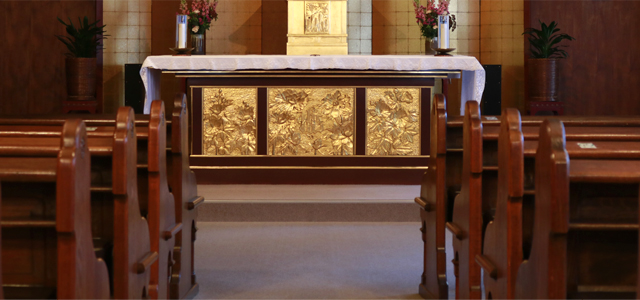
Catholic Q&A
I cannot agree with the explanation on the Trinity. Regarding the statement, “If you believe that Jesus is the one who in an absolute way is the mediator of God it already implies faith in the Trinity,” would that not mean that Jesus is merely a mediator, and not God? As it is said in the following passages from the Gospel of John, “I tell you the truth, before Abraham was even born, I am!” (John 8:58); and “ I and the Father are one.” (John 10:30), I was taught that like the Father, Jesus also was God.
Frankly I find myself in a fix. When I provide an answer to satisfy one person I get lashed by those who view the situation from alternate angles. Even with regard to explaining the same content of faith there are diverse means. In understanding a faith and expressing it in words, the concepts, philosophies, and means used may vary. In this magazine, since I am making efforts to get those with no knowledge of Christianity to gain an understanding of it, those who have studied the traditional doctrine may perhaps feel that things could differ a little from what I say.
As what sort of a person should we understand Jesus? With regard to this the new Testament presents various ways of doing so. The original understanding of Jesus in the synoptic Gospels is that he is the mediator between God and mankind, and the person who brings us salvation. However the author of the Gospel of John mentions his deep faith experience of ruminating over the mystery of the work of salvation in prayer and religious life, over several years. There are differences in the stages of growth of faith, and there are also differences in the soil that enables the faith to develop.
Hence, while some people may say the Jesus presented by John is the one that enlivens their faith, others may insist that the Jesus described by Mark is the one that appeals most to them. Accordingly, it would not be right to insist that understanding Christian faith in the way of John is the correct way, and other ways of understanding Christianity are erroneous.
In fact this happens to be a recurring controversy in the history of the Church. As Karl Rahner, a leading figure in Catholic theology of the current century pointed out, the statement “Jesus is God” could be easily misjudged by those not having an understanding of Christianity. If it were only that, would it not make people think that God came down to the earth from heaven by taking the shape of a human being? Jesus is not God in the same sense as the Father. We need to affirm at the same time that “Jesus is a human being.”
If you feel the need to essentially re-examine what you have learned so far or what you thought you knew so far, or if you feel your beliefs are getting unsettled, then that might be an opening for your faith to grow. Human knowledge and so on were poor from their very commencement. Someday when we are summoned by God and when we witness the mystery before our eyes, we will realize how imperfect were the things we had intended to know on earth. However, since God, despite our destitution has invited us, we should continue this quest with humble hearts as long as we are alive.
And once you encounter Jesus and believe that he is the Lord, please move on to the next step. Proceed like John towards the mystery of the Holy Trinity. This is not just an issue of understanding with the mind. This is something we need to pursue and deepen throughout our lives, via prayer and the activities of everyday life. The mystery enfolding us is that of the Father who seeks to share his love, the Son who seeks to accept the love, and the Spirit who constitutes the fellowship of the two.
The prayer of Jesus in chapter 17 of the Gospel of John grants us a glimpse of the fellowship between the hearts of the Father and Son. The Father offers himself, and permits the execution of his work. Jesus, by his performance of that work, may be said to give glory to the Father. We, by our unity with Jesus receive the love of the Father, and by our reception of this love we give glory to the Father. In the Gospel of John, Jesus prays as follows. “I have made you known to them, and will continue to make you known in order that the love you have for me may be in them, and that I myself may be in them.” (John 17:26).
